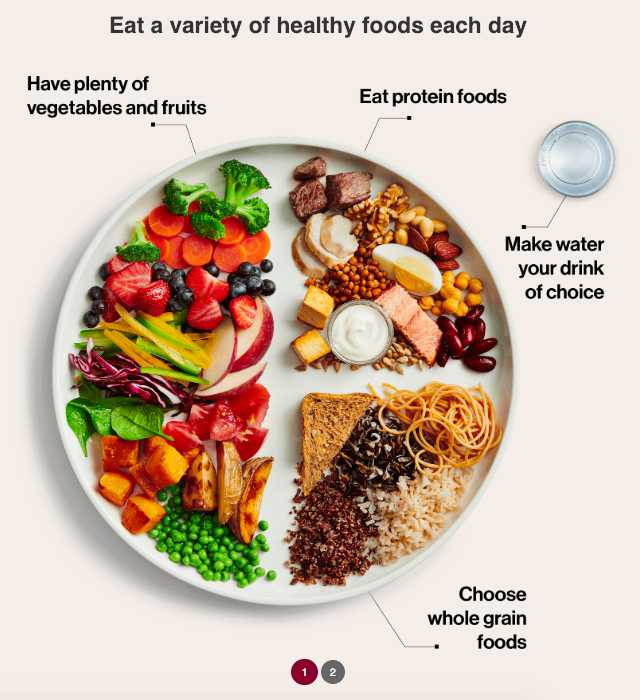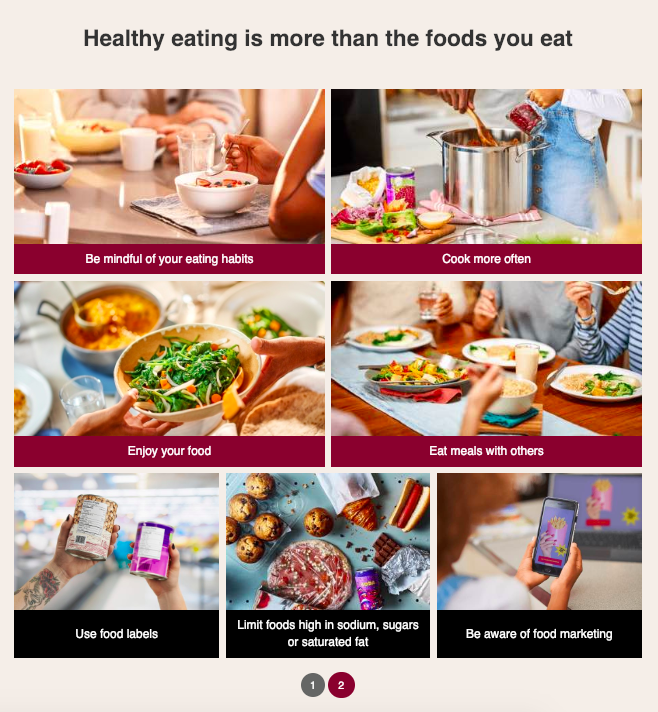Have you seen the new food guide? Health Canada released its newest version of the Food Guide this January. In case you missed it, here’s a snapshot of their latest recommendations:


The new Food Guide is certainly much better than its predecessors. I am loving the fact that:
- There is little to no emphasis on acquiring protein from dairy products.
- Protein is highlighted as a must-have macronutrient.
- Variety in [healthy food] is given some recognition. Canada is a nation of diversity after all! Not everyone will be following the same dietary regimen.
- Water intake is encouraged!
- It encourages mindfulness: (1) food labels (i.e. ingredients); (2) marketing (i.e. do not be deceived by the filters on social media… I’m looking at you, over-sprinkled desserts); (3) eating habits (i.e. enjoy your food, avoid eating while watching TV, etc.)
- It encourages people to make their own food. You have control over what goes in your body.
- It provides fairly simple and doable suggestions. It simply favors balancing your meals. Something everyone can appreciate!

Despite the many groundbreaking changes – yes, groundbreaking, I repeat, way better than its predecessors – the Food Guide is far from perfect.
- While the guide doesn’t explicitly say it, fat is still not seen as a macronutrient necessary for good health. The hate on fat is still real and alive! Fats are not all bad. In fact, [good] fats are necessary for energy, metabolism, hormonal regulation, brain and nerve health, cardiovascular health, etc.
- Meats need not be completely taken out of the food guide. Meat is still one of the best sources of protein, iron, zinc, and vitamins and minerals. What should be encouraged? Eating grass-fed, humanely raised animals.
- The guide does not address how we can break down economic, social, and cultural barriers many individuals and families face to accessing healthy food. For instance, the Food Guide recommends consuming fresh produce. Fresh produce is evidently more expensive than frozen food, but frozen food still contains significant nutrient content. It may help to offer or reassure people that it’s okay to prioritize budget/quantity over stressing over whether or not your groceries look like Canada’s Food Guide.
- I hope the next version of the Food Guide includes realistic food recommendations that reflect what is accessible and affordable for communities. I hope there is more reflective discussion between Health authorities and the public so that there is more knowledge being shared regarding food and health.
- The Food Guide should have also taken into consideration how the sourcing of foods can affect the environment as well as impact our society. It takes a lot more resources to eat produce that is not naturally available during off-season. Eat seasonally and locally. It’s better for you and for the Earth that you live in.
These are just some points I wanted to share with you, in hopes of encouraging you to think critically about diet, nutrition, and sustainability. Food guides are meant to be just that – guides. It is difficult to come up with a food guide that caters to everyone’s needs. Health Canada took a big leap at providing the best information they can to the general public, and this time around, with less politicization and influence from the giant food industries. [1, 2, 3, 4]
What are your thoughts on the new Canadian Food Guide? What changes would you like to see should Health authorities revise the guide again? How much do you rely on these recommendations?
